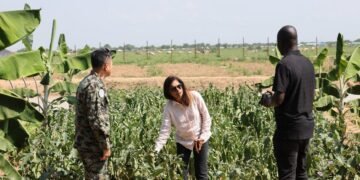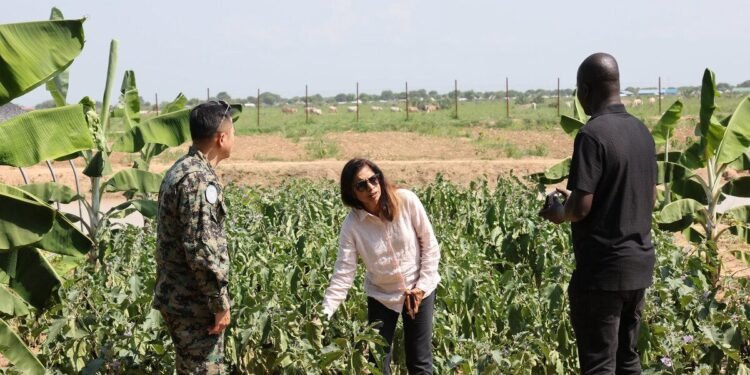Facing a dire humanitarian situation where more than 1.3 million people are suffering from acute food insecurity, South Korean peacekeepers with the United Nations Mission in South Sudan (UNMISS) are partnering with local institutions to boost food production and build community resilience.
The food crisis in Jonglei and Greater Pibor is a result of persistent inter-communal fighting, climate shocks, and a deteriorating economic situation.
In collaboration with the Dr. John Garang Memorial University of Science and Technology, the peacekeepers are introducing high-tech farming techniques to transform the region’s agricultural sector.
A key initiative is the development of a new rice variety, named Korous—a combination of “Korea” and “rice” in Juba Arabic—and training local communities on how to cultivate it UNMISS underscored.
Elizabeth Nyang Kiir, a student at the Hanbit Vocational Training Center, a facility established by the South Korean peacekeepers in 2015, highlighted the impact of the program.
“I am applying the knowledge I have learned here at the community level, working with local farmers. I also have my own small farm where I have planted this rice,” she said.
The Hanbit Vocational Training Center has equipped hundreds of young people with a range of skills, including welding, construction, plumbing, carpentry, and agriculture.
Geetha Pious, Head of UNMISS’ Bor Field Office, emphasized the multi-faceted benefits of the partnership.
“Working alongside the technical university, we are implementing technological advances in a multi-faceted way: the university is benefiting, and the community is benefiting from the presence of the peacekeepers from South Korea,” she noted.
The initiative also seeks to diversify income sources in a region where cattle are traditionally the primary focus of wealth and status.
Teaching assistant John Koryom praised the new focus on poultry farming.
“Our people often focus only on raising livestock, ignoring the possibilities around the domestication of birds.
The South Korean peacekeepers have inspired the university to introducing poultry farming training and it now also has high value in our community,” he said.
According to vocational trainer Peter Ajak, the school’s goal is to empower students to be self-reliant.
“This vocational school has enhanced the skills of the students to be self-reliant, self-employed, to create their own jobs and then employ other people, which is job creation and also empowerment of human resources,” he explained.
Through these partnerships and a spirit of mutual respect, the peacekeepers are helping the people of South Sudan build a more secure and prosperous future.












